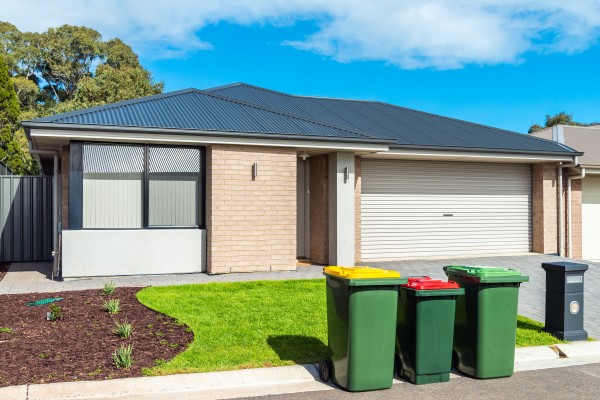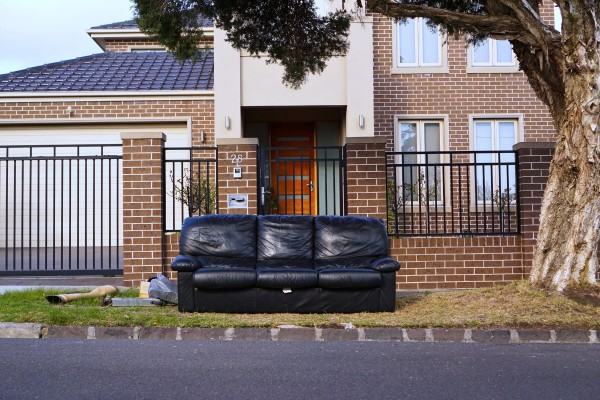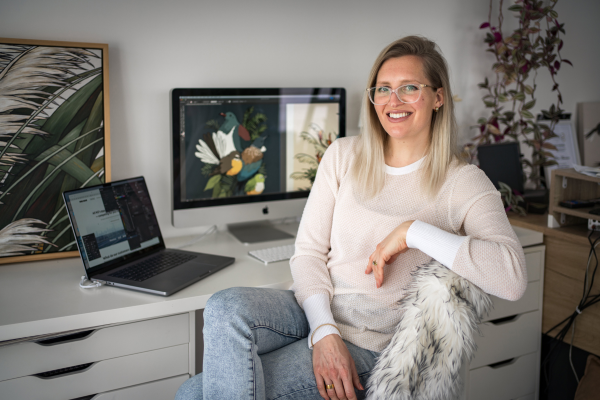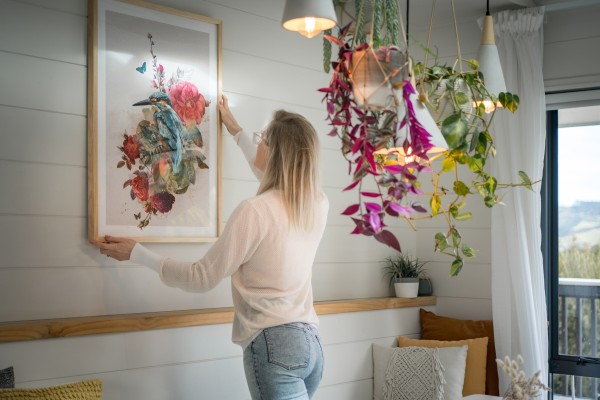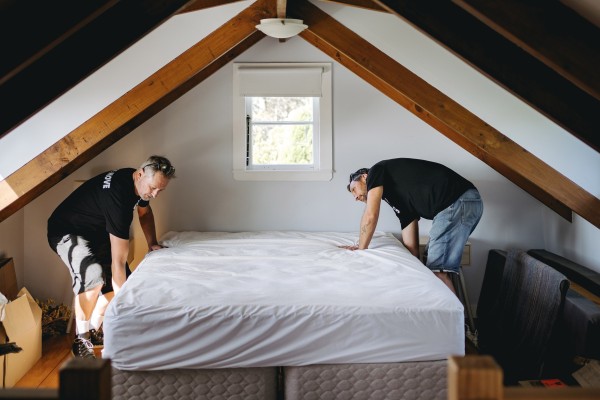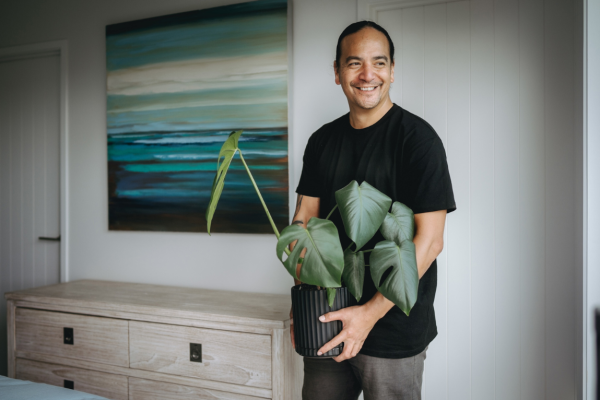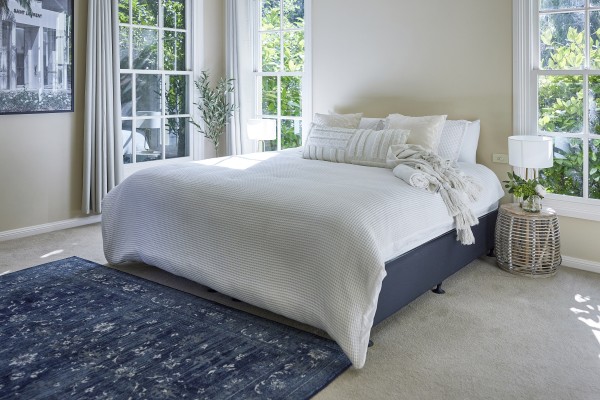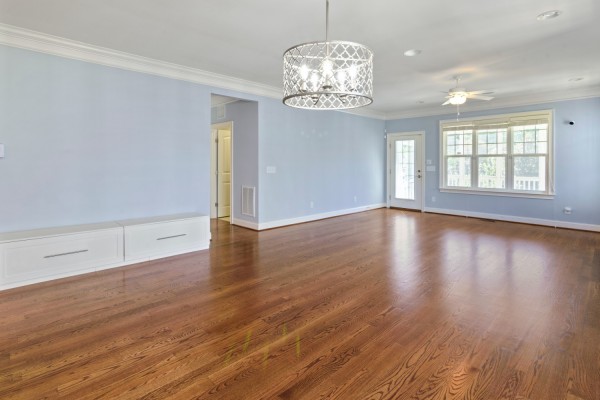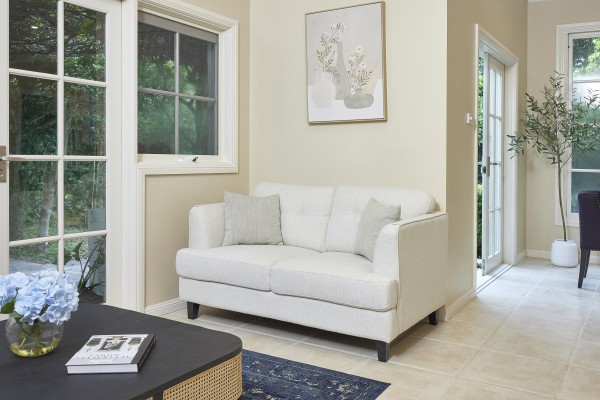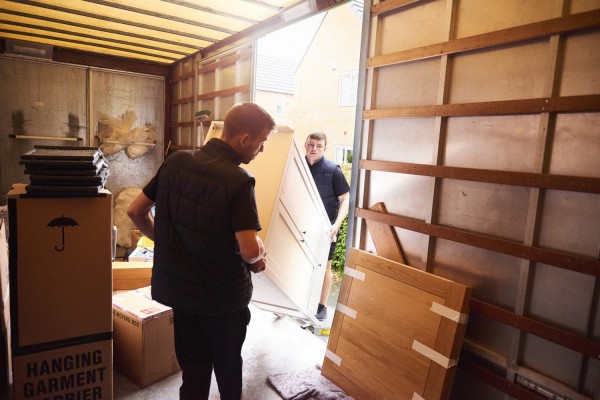Feng Shui for homes | Detailed home layout guide
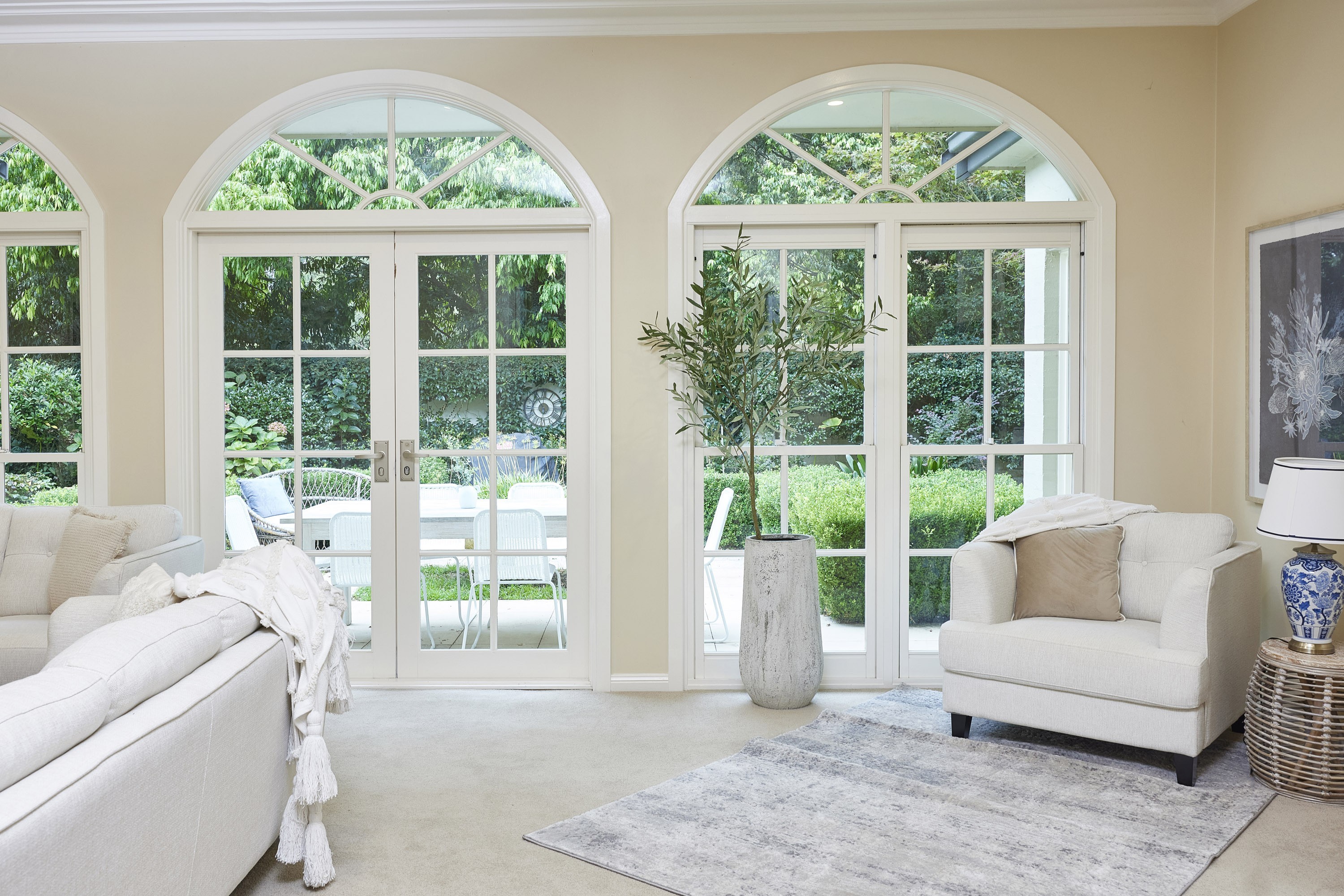
In a world loaded with work demands, social obligations and the constant pull of technology, it’s easy to lose sight of balance. While you can’t control the outside world, your home has the power to be a private safe-haven where you can switch off, energise and recentre.
The ancient practice of feng shui can help you create a space at home that boosts positive energy, improves your mood, and even enhances your health and relationships.
But what is feng shui?
What are the do’s and don’ts?
And, what are the key things to think about when implementing feng shui in your home?
In this guide we’re covering simple, practical steps to implement this ancient energetic practice in every room of your home.
What is feng shui?
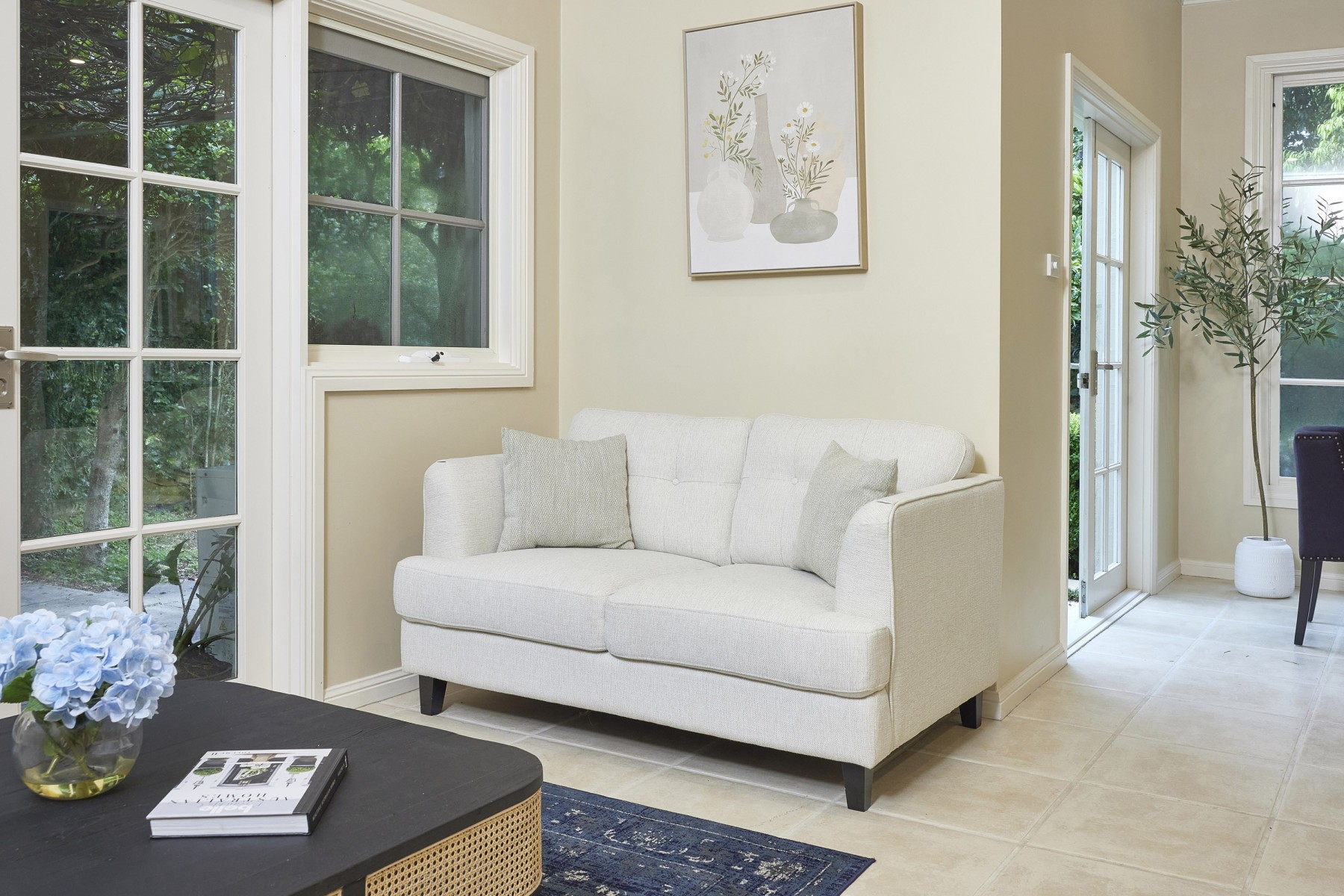
Feng shui is an ancient Chinese practice that focuses on the flow of energy, or chi, within a space.
The term "feng shui" literally translates to "wind and water," symbolising the way natural forces influence our environment.
The term "feng shui" literally translates to "wind and water".
It’s believed that by arranging furniture, colours, and objects in specific ways you can enhance the flow of positive energy and reduce negative energy.
Intertwining natural elements such as water, fire, wood, metal, and earth into your design aesthetic further supports the flow of energy, and can help create spaces that support health, prosperity, relationships, and overall peace of mind.
In short, feng shui is about setting up your environment in a way that feels good for the mind, body and soul.
What are feng shui principles?
There are four key principles of feng shui:
Bagua areas
In feng shui the Bagua Map divides any space into nine areas - each with its own focus and colour.
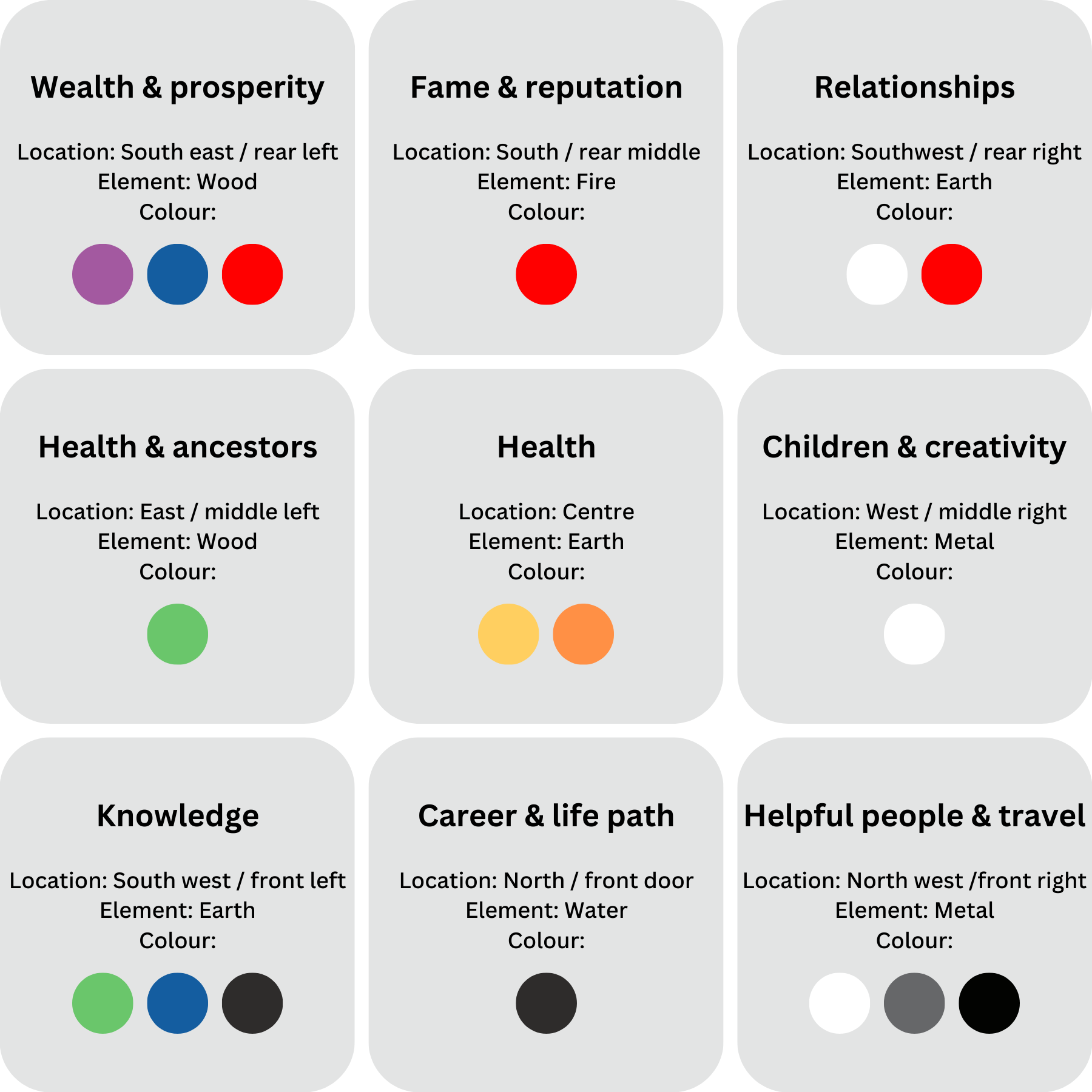
Front entrance
Ideally, your home layout should mirror this map. For example, it would make sense to set up your home office in the wealth and prosperity area of your house and incorporate the element of wood or play with some purple, blue or red colour palettes.
If your house layout doesn’t allow for entire rooms to be set up in accordance with this map, small design touches are a great way to infuse energy into a space. For example, you could put wedding photos or photos of loved ones in the love and marriage area.
Chi
Chi (pronounced chee) is a simple but powerful concept and refers to the life force energy that flows through all living things and the spaces around us.
It’s believed that just as our bodies need a balance of chi to stay healthy and energised, so too do our homes.
In feng shui the arrangement of our surroundings can directly influence the quality and flow of chi which can in turn impact everything from our success to our internal and external wellness.
The five elements
In feng shui each of the five elements (wood fire, earth, metal and water) plays a unique role in shaping the energy of a space.
Wood: represents new beginnings, creativity and growth. It’s seen as a nourishing energy that helps stimulate personal development and prosperity. You can incorporate the element of wood into your home through the use of plants, wooden furniture and green or brown tones.
Fire: represents passion, transformation, power and illumination. In feng shui fire is used as a force to stimulate action, inspire creativity and clear stagnation. Candles, fireplaces and red and orange tones are good ways to incorporate the element of fire into your home design.
Earth: represents stability, grounding and nourishment. You can incorporate this element into your home through ceramics, stones, crystals and neutral tones.
Metal: represents clarity, strength and precision and encourages you to let go of what no longer serves you. You can incorporate metal into the home through metal furniture, sculptures or white and grey tones.
Water: represents flow, abundance and wisdom. It is also an essential element for relaxation and general well-being. You can incorporate water into your home through fountains, aquariums or even a small bowl of water placed decoratively on a shelf. Mirrors can also be used since they reflect and amplify energy in the same way that water reflects light.
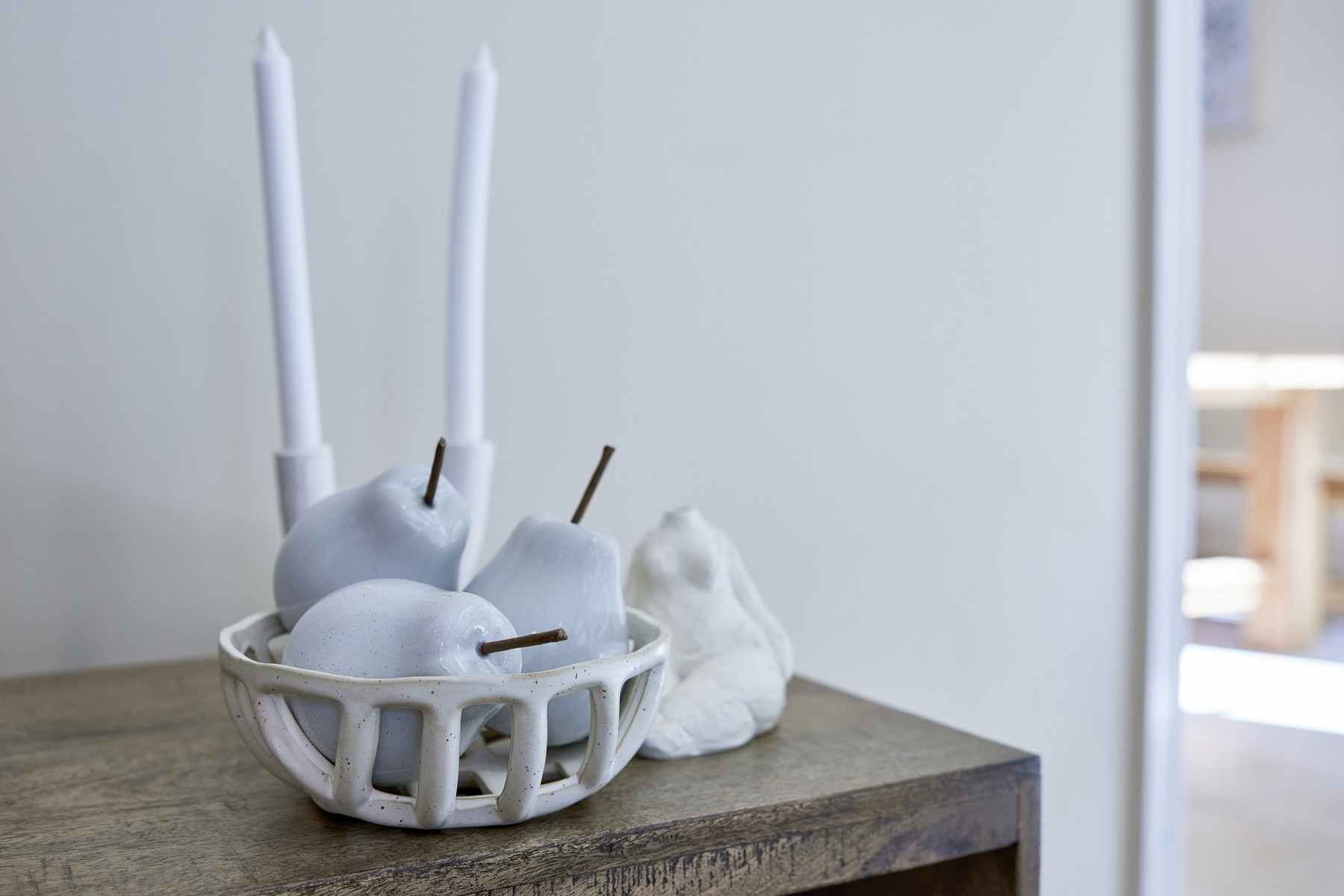
Yin and yang
Yin and yang are two opposing, yet complementary forces that shape the universe. They represent the balance of all things.
Yin is associated with qualities like stillness, coolness, passivity, and rest. It is feminine, receptive, and nurturing. Yin represents the night, the moon, and the dark. In feng shui, yin energy is calm, introspective, and soothing—ideal for spaces that require rest, reflection, or relaxation.
Yang is the counterpart to yin. It embodies movement, light, heat, and activity. It is masculine, dynamic, and outwardly focused. Yang represents the day, the sun, and brightness. In feng shui, yang energy is vibrant, energetic, and expansive—perfect for areas of the home where activity, creativity, and focus are needed.
In feng shui, the goal of yin and yang is to blend the energies in a way that suits the room’s purpose. This means ensuring that no space feels too stagnant (too much yin) or too chaotic (too much yang).
By thoughtfully balancing these forces, you can create an environment that nurtures both rest and vitality, supporting your overall well-being and success.
Feng shui home layout - room by room
By now you should have a good understanding of feng shui and its key principles - but what does that actually mean when it comes to designing your home?
Here's a room-by-room guide to setting up your home according to feng shui principles.
Feng shui bedroom layout
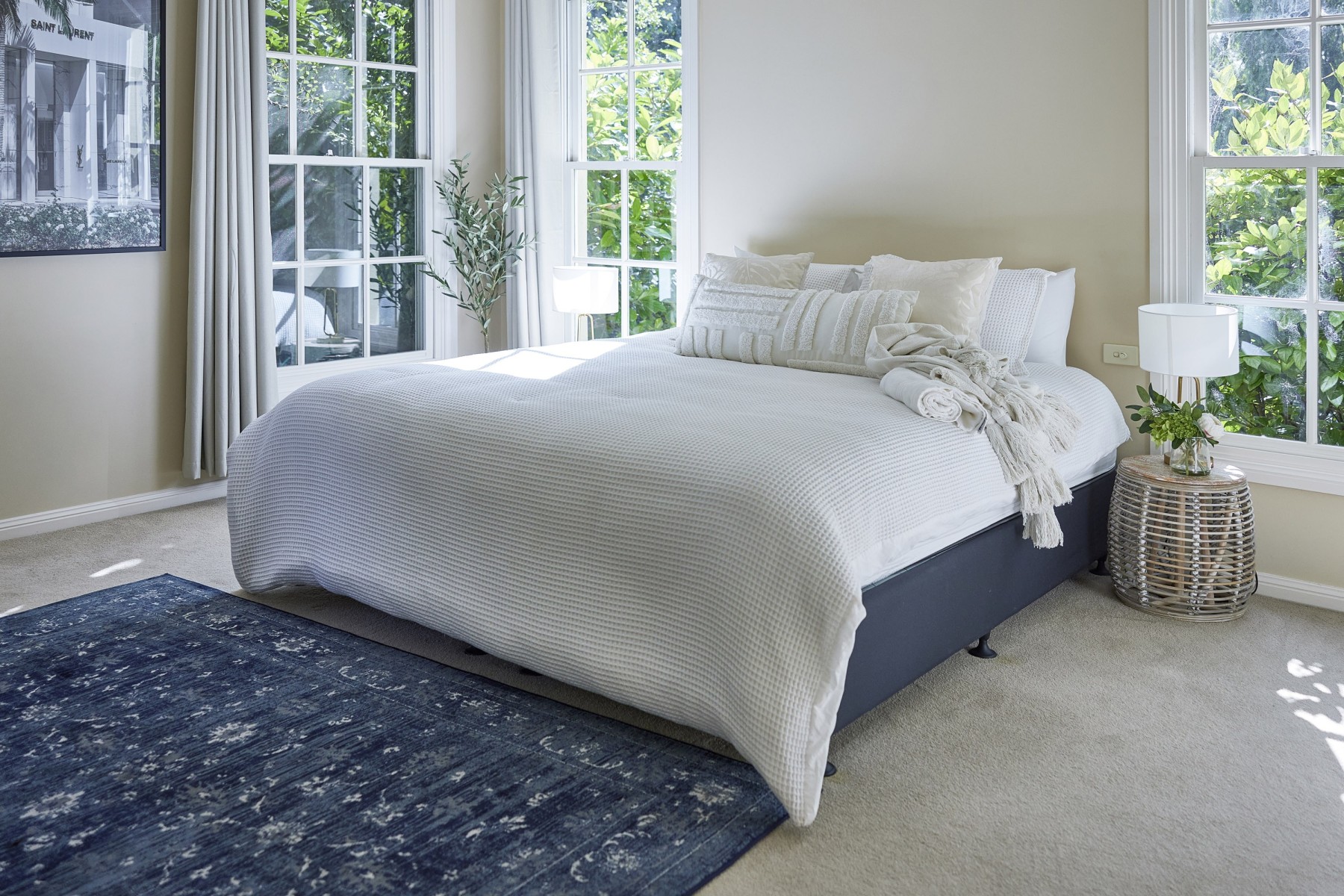
The bedroom is considered a sanctuary in the home as well as the place of rest so it’s essential that this area promotes relaxation and tranquillity. Think soft lighting, soothing colours and matching nightstands to promote harmony.
Key feng shui design rules for the bedroom
-
The bed should be placed where you can see the door but not directly in line with it. Avoid positioning the bed under a window or near a door, as it can lead to a restless or unstable sleep environment.
-
Keep electronics like TVs, computers, and phones out of the bedroom, as they can disrupt your energy and sleep.
Feng shui living room
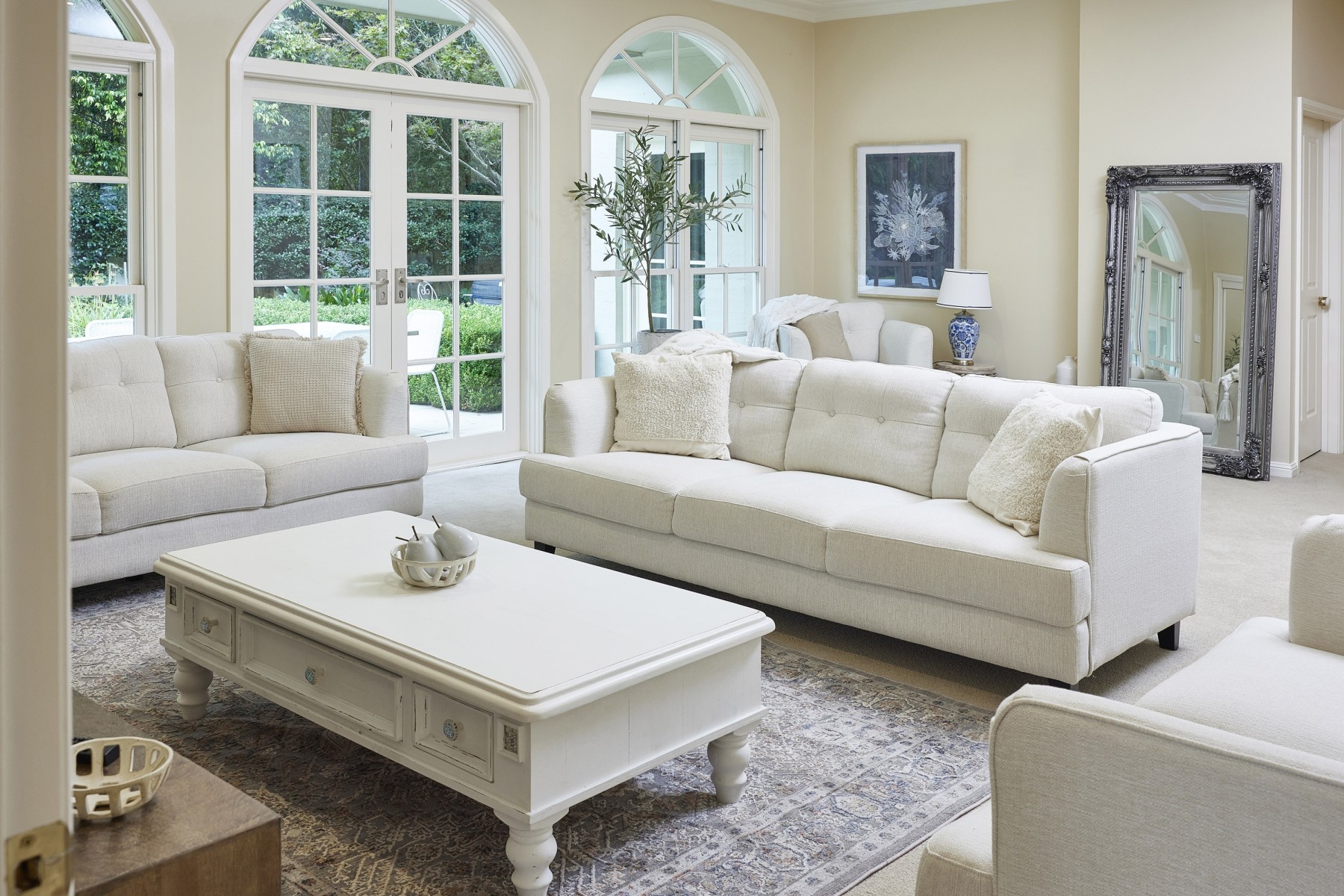
The living room is usually the heart of the home and therefore serves many different purposes. It should be an uplifting space that fosters connection and relaxation. Remember, this is where the energy of the entire family circulates, so balance is key.
Key feng shui design rules for the living room
-
Arrange seating to promote conversation and connection.
-
Avoid placing furniture with its back to the door, as it can create a sense of vulnerability.
-
Use a mix of natural light, soft lighting, and colours that reflect the room's purpose. Earthy tones (greens, browns) can bring a sense of stability, while warm colours like yellow or orange can add energy.
-
Decorate with personal items or artwork that reflect joy, peace, and positive energy.
-
Avoid harsh or overly sharp angles, as they can create a sense of discomfort.
Feng shui of kitchen
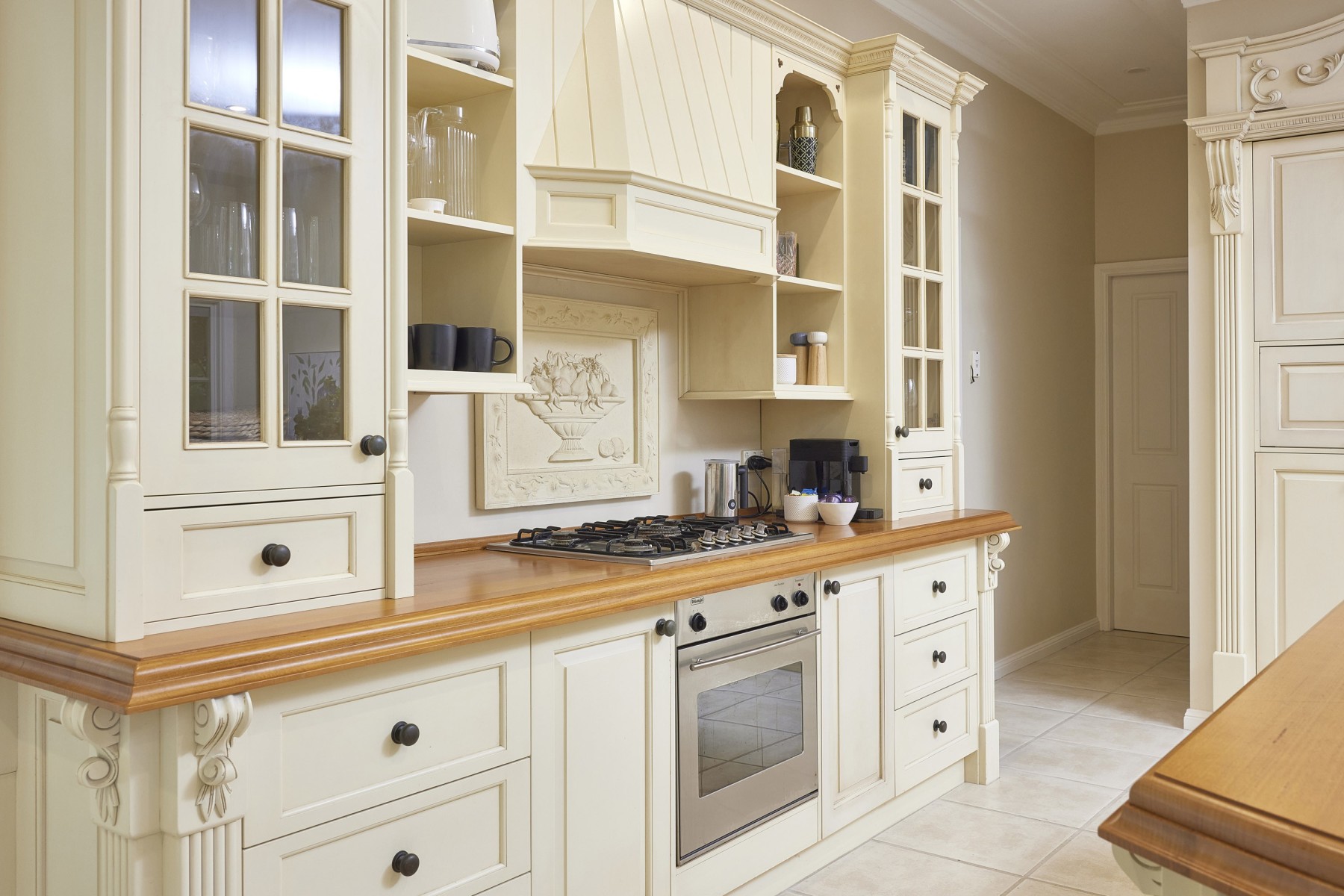
In feng shui, the kitchen is considered to be one of the most important areas, as this is the space that nourishes the family.
It can also be a busy and high energy space, so organisation is important when it comes to positive chi flow.
Key feng shui design rules for the kitchen
-
Avoid letting dishes or clutter accumulate, as this can block the flow of energy.
-
In feng shui, the stove represents wealth and abundance. Ideally, the stove should be placed where you can see the door while cooking (but not directly in line with it), to ensure you feel in control of your space.
-
Keep countertops clear to allow energy to flow freely.
Feng shui in the bathroom
Bathrooms are associated with cleansing and emotional release.
Key feng shui design rules for the bathroom
-
Because bathrooms can drain/cleanse/release energy, it's important to keep the bathroom door closed when not in use. This helps prevent leaking energy through the house and enables you to hold onto your ‘positive chi’.
-
Avoid placing mirrors facing the toilet, as they can reflect negative energy.
-
If possible, add soft, calming elements like a small water fountain or plants. These additions can help keep the energy flowing in a positive way.
What is bad feng shui for a house?
While feng shui centres around energy flow, balance and harmony, bad feng shui would include anything that blocks this.
This includes:
-
Clutter and disorder
-
Mental chaos
-
Doors that don’t open fully (blocking energy flow)
-
Too many mirrors
-
Sharp angles that can cut energy, cause tension or create unease
-
Low ceilings which can create a feeling of pressure or restriction
Is feng shui real?
While feng shui has been practised in various parts of the world since ancient times, there are still those who raise eyebrows around its effectiveness and influence on health and happiness.
Can the arrangement of furniture really affect your mood, productivity or even luck?
Well, the research is in.
-
Research has shown that the physical environment we are in has a significant effect on how we feel, think, and behave. For example: A cluttered or disorganised space has been linked to increased stress and anxiety. In contrast, when a room is tidy and organised, it generates feelings of calm and support.
-
The placebo effect: In feng shui, when people arrange their homes according to the principles of balance and harmony, they can experience positive changes simply because they believe that these changes will improve their lives.
-
Following feng shui principles also offers a sense of empowerment and control over your environment, which has been shown to positively affect mental well-being.
Relocating - the perfect opportunity to implement feng shui

Moving house is the perfect time to implement feng shui in the home. With a new and empty home comes a clean slate and an opportunity to set up your new space to align with optimal energy flow and balance principles. The best part about moving is that you get access to the help of professional movers when it comes to the heavy lifting and furniture arrangement.
If you need help finding the right movers for the job, Upmove can help. At Upmove we connect you with affordable, reliable removalsits from all over Australia - helping you get set-up without the stress.
What do our customers say?




